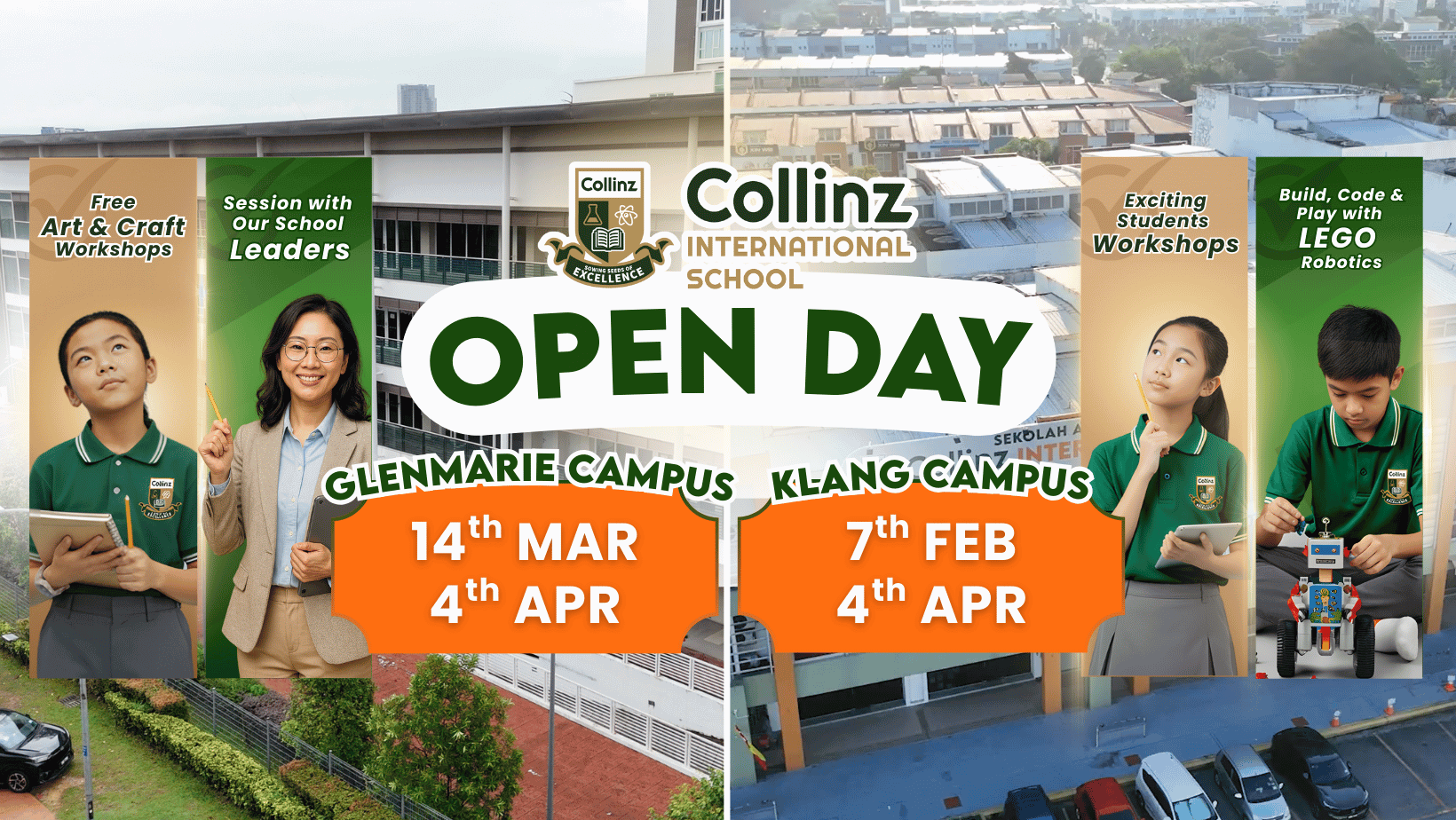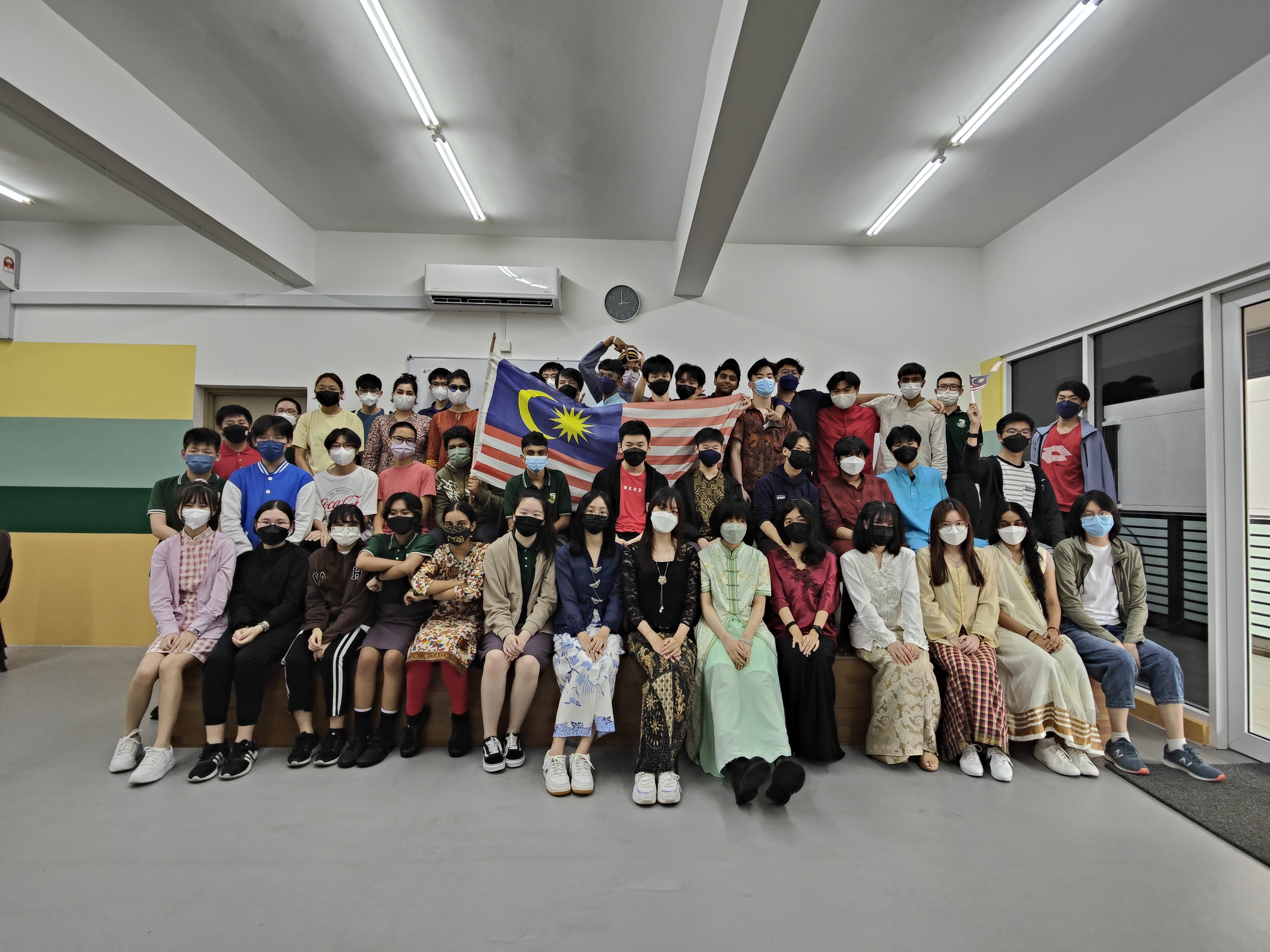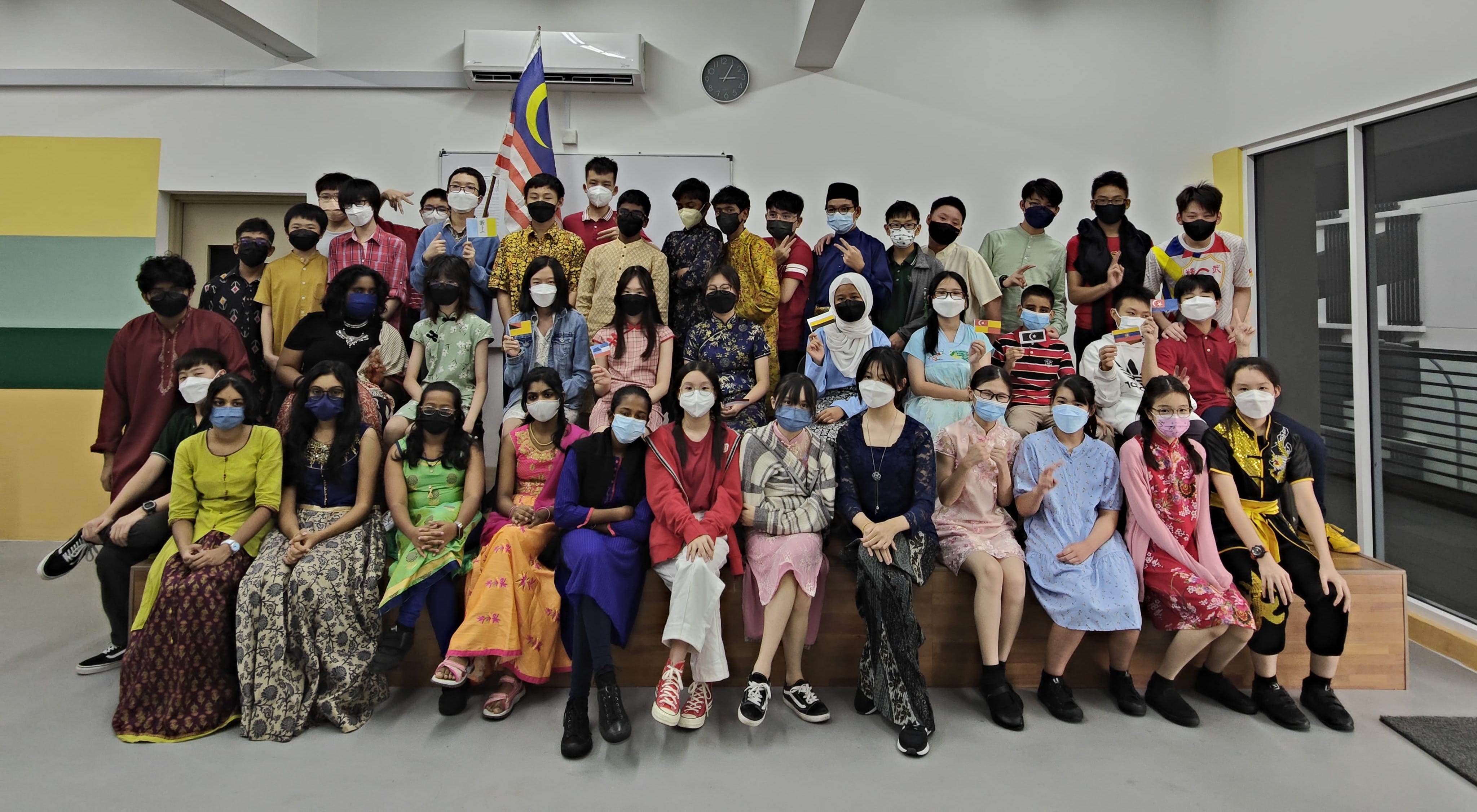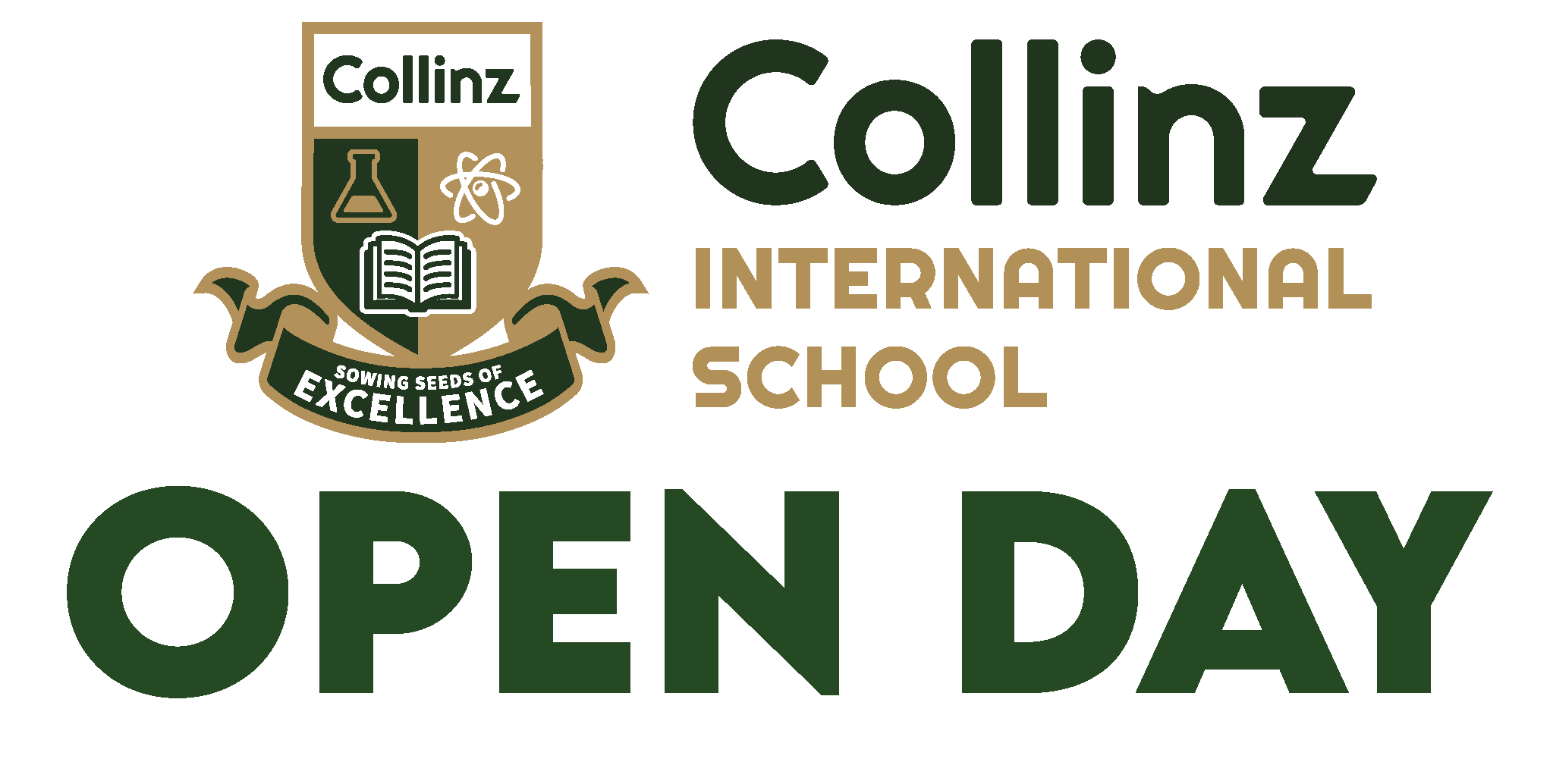An overview to Collinz Secondary
The International General Certificate of Secondary Education (IGCSE) curriculum offered in Key Stage 3 & 4 builds on the skills, knowledge and understanding gained in lower years.
Collinz Secondary Syllabus
Key Stage 3
Our Lower Secondary Programme is based on the International General Certificate of Secondary Education (IGCSE) for students in Year 7-9. It helps to prepare students for the next step of their education, providing a clear path as they progress through the Cambridge Pathway in an age-appropriate way.
- Expanding on the knowledge and skills in the KS2 subjects
- Creating a seamless learning transition from primary to secondary years
- Laying excellent foundation for the next stage (KS4)
- Enhancing problem solving and critical thinking skills through inquiry-based learning
- Consistent guided self-exploration
Key Stage 4
The International General Certificate of Secondary Education (IGCSE) curriculum offered in Key Stage 4 builds on the skills, knowledge and understanding gained in lower years. Our KS4 programme focuses on preparing students to excel in the internationally recognized Cambridge IGCSE qualification at the end of Year 11. KS4 is the most crucial stage throughout the years of education as it lays the pathway for students to enter world renowned colleges or universities.
- Teach students to take responsibilities in decision-making for their own future. Our aim is to shape students into young, mature adults who are ambitious in pursuing their life goals and resilient in adapting to societal changes.
Lower Secondary (Key Stage 3)
Fundamental Pathway in Education
- Age Range: 12/13 - 14/15 years old
- Year Groups: Years 7 - 9

Throughout Year 7-9 (KS3), students are taught all of the following subjects:
Subjects
Students develop their reading, writing, listening and speaking skills through exploration of letter sounds, vocabulary and grammar by engaging with a range of text types to mould them into becoming competent readers and writers in English Language.
The aim is to develop an ability to use the language effectively for practical communication. The course is based on the linked language skills of listening, reading, speaking and writing, and these are built on as learners progress through their studies.
The aim is to develop an ability to use the language effectively for practical communication. The course is based on the linked language skills of listening, reading, speaking and writing, and these are built on as learners progress through their studies.
The syllabus aims to build learners' confidence by helping them develop competence and fluency with mathematical concepts, methods and skills, as well as a feel for numbers, patterns and relationships.
They learn how science is studied and practised, and become aware that the results of scientific research can have both good and bad effects on individuals, communities and the environment. As well as focusing on the individual sciences, the syllabus helps learners to understand the technological world in which they live, and take an informed interest in science and scientific developments.
Students develop an understanding of the implications of technology in society and the ways Information and Communication Technology (ICT) can help at home, work and the wider world. Through practical and theoretical studies, students solve problems using a variety of common software such as word processors and interactive presentation software.
Moral (Non-Malays):
Moral Education helps students to develop critical thinking among the students as they tend to become more rational and understanding of the situation around them.
Islamic Studies (Malays):
learners will study the history and culture of Islam and key figures in the faith. They will also study and reflect upon different extracts of religious texts and have the opportunity to think about how texts relate to how Muslims think and act in everyday life today.
It is both cross-curricular and skills-based and taps into the way learners of today enjoy learning, including team work, presentations, projects, and working with other learners around the world. The emphasis is on developing the ability to think critically about a range of global issues where there is always more than one point of view.
Learners develop an understanding of the nature of cause and effect, continuity and change, similarity and difference and find out how to use and understand historical evidence as part of their studies. History will stimulate any learner already interested in the past, providing a basis for further study, and also encouraging a lifelong interest in the subject.
Specialist Subjects
- Physical Education
Students practice a physically healthy lifestyle in school by mastering basic movements, balance, agility and coordination during PE lessons as well as participating in outdoor sports activities and sports events.
- Art & Craft / Living Skills
Students express their creativity through drawing and painting. Students' work is exhibited in schools.
- Music
Students are cultivated to develop the 3 skills, composing, performing and listening. During music lessons, students learn to play various musical instruments and are given opportunities to perform as a group through school assemblies and school events. They also learn different musical terminology which greatly benefits them in playing various musical instruments.
- (CCA) Co-curricular Activities & (ECA) Extra Curricular Activities
CCA is an integral part of our students’ holistic education. Through CCA, students discover their interests and talents while developing values and competencies that will prepare them for a rapidly changing world. CCA also promotes friendships among students from diverse backgrounds as they learn, play and grow together. Participation in CCA fosters social integration and deepens students’ sense of belonging, commitment and sense of responsibility to school, community and nation.
Upper Secondary (Key Stage 4)
Equipping for the Future
- Age Range: 15/16 - 16/17 years old
- Year Groups: Years 10 - 11

Throughout Year 10-11 (KS4), students are taught of the following subjects:
(* Subject to be offered from 2021 onwards.)
Compulsory Subjects
- Cambridge IGCSE English - First Language (0500)
- Cambridge O Level English Language (1123)
- Cambridge IGCSE English as a Second Language (Speaking endorsement) (0510)
Cambridge IGCSE First Language English is designed for learners whose first language is English.Cambridge IGCSE First Language English also develops more general analysis and communication skills such as inference, and the ability to order facts and present opinions effectively.
The Cambridge O Level English Language syllabus enables learners to communicate accurately, appropriately and effectively and to understand and respond appropriately and imaginatively to what they read and experience.
Cambridge IGCSE English as a Second Language is designed for learners who already have a working knowledge of the language and who want to consolidate their understanding in order to progress in their education or career. Through their studies, learners will improve their ability to understand and use English in a range of situations.
- Cambridge IGCSE Malay - Foreign Language (0546)
- Cambridge IGCSE Malay - First Language (0696)
This syllabus is designed for students who are learning Malay as a foreign language. The aim is to develop an ability to use the language effectively for practical communication. The course is based on the linked language skills of listening, reading, speaking and writing, and these are built on as learners progress through their studies.
The Cambridge IGCSE First Language Malay syllabus is for learners whose first language is Malay. This First Language syllabus develops learners' ability to communicate clearly, accurately and effectively. They learn how to employ a wide-ranging vocabulary, use correct grammar, spelling and punctuation, and develop a personal style and an awareness of the audience being addressed.
- Cambridge IGCSE Mathematics (0580)
An essential subject for all learners, Cambridge IGCSE Mathematics encourages the development of mathematical knowledge as a key life skill, and as a strong basis for more advanced study. The syllabus aims to build learners' confidence by helping them develop competence and fluency with mathematical concepts, methods and skills, as well as a feel for numbers, patterns and relationships.
- Cambridge IGCSE Information & Communication Technology (0417)
Learners will analyse, design, implement, test and evaluate ICT systems, making sure that they are fit for purpose. There is an emphasis on developing lifelong skills, which are essential across the curriculum and their future career.Through practical and theoretical studies, students solve problems using a variety of common software such as word processors and interactive presentation software.
- Cambridge IGCSE Physical Education (0413)
The syllabus provides learners with an opportunity to study both the practical and theoretical aspects of physical education. It is designed to encourage enjoyment in physical activity by providing learners with an opportunity to take part in a range of physical activities and develop an understanding of effective and safe physical performance. This helps learners to develop an appreciation of the necessity for sound understanding of the principles, practices and training that underpin improved performance, better health and well-being.
Optional Subjects
- Cambridge IGCSE Mathematics - Additional (0606)
Cambridge IGCSE Additional Mathematics supports learners in building competency, confidence and fluency in their use of techniques and mathematical understanding. This course helps learners to develop a feel for quantity, patterns and relationships. Learners will develop their reasoning, problem-solving and analytical skills in a variety of contexts.
- Cambridge IGCSE Physics (0625)
Cambridge IGCSE Physics helps learners to understand the technological world in which they live, and take an informed interest in science and scientific developments. The syllabus includes the basic principles and concepts that are fundamental to the subject, some current applications of physics, and a strong emphasis on practical skills.
- Cambridge IGCSE Chemistry (0620)
Cambridge IGCSE Chemistry helps learners to understand the technological world in which they live and take an informed interest in science and scientific developments. The syllabus includes the basic principles and concepts that are fundamental to the subject, some current applications of chemistry, and a strong emphasis on practical skills.
- Cambridge IGCSE Biology (0610)
Cambridge IGCSE Biology helps learners to understand the biological world in which they live and take an informed interest in science and scientific developments. The syllabus includes the basic principles and concepts that are fundamental to the subject, some current applications of biology, and a strong emphasis on practical skills.
- Cambridge IGCSE History (0470)
The Cambridge IGCSE History syllabus looks at some of the major international issues of the nineteenth and twentieth centuries, as well as covering the history of particular regions in more depth. The emphasis is on both historical knowledge and on the skills required for historical research.
- Cambridge IGCSE Mandarin Chinese - Foreign Language (0547)
- Cambridge IGCSE Chinese - First Language (0509)
This syllabus is designed for learners who are learning Mandarin Chinese as a foreign language. The aim is to develop an ability to use the language effectively for practical communication. The course is based on the linked language skills of listening, reading, speaking and writing, and these are built on as learners progress through their studies.
The Cambridge IGCSE First Language Chinese syllabus is designed for learners whose first language is Chinese. The syllabus develops learners' ability to communicate clearly, accurately and effectively. They learn how to employ a wide-ranging vocabulary, use correct grammar, spelling and punctuation, and develop a personal style and an awareness of the audience being addressed.
- Cambridge IGCSE Business Studies (0450)
The Cambridge IGCSE Business Studies syllabus develops learners' understanding of business activity in the public and private sectors, and the importance of innovation and change. Learners find out how the major types of business organisation are established, financed and run, and how their activities are regulated. Factors influencing business decision-making are also considered, as are the essential values of cooperation and interdependence.
- Cambridge IGCSE Economics (0455)
The Cambridge IGCSE Economics syllabus develops an understanding of economic theory, terminology and principles. Learners study the economics of different countries and how these interrelate. They also learn to work with simple economics data and to use the tools of economic analysis. Learners apply understanding of economics to current economic issues.
- Cambridge IGCSE Accounting (0452)
The Cambridge IGCSE Accounting syllabus introduces learners to the theory and concepts of accounting and the ways in which accounting is used in a variety of modern economic and business contexts. Learners focus on the skills of recording, reporting, presenting and interpreting financial information and build an ideal foundation both for further study and for a future career within the profession.
- Cambridge IGCSE Global Perspectives (0457)
Cambridge IGCSE Global Perspectives is a groundbreaking and stimulating course that stretches across traditional subject boundaries and develops transferable skills. It is both cross-curricular and skills-based and taps into the way learners of today enjoy learning, including team work, presentations, projects, and working with other learners around the world. The emphasis is on developing the ability to think critically about a range of global issues where there is always more than one point of view.
Specialist Subjects
- (CCA) Co-curricular Activities & (ECA) Extra Curricular Activities
CCA is an integral part of our students’ holistic education. Through CCA, students discover their interests and talents while developing values and competencies that will prepare them for a rapidly changing world. CCA also promotes friendships among students from diverse backgrounds as they learn, play and grow together. Participation in CCA fosters social integration and deepens students’ sense of belonging, commitment and sense of responsibility to school, community and nation.







